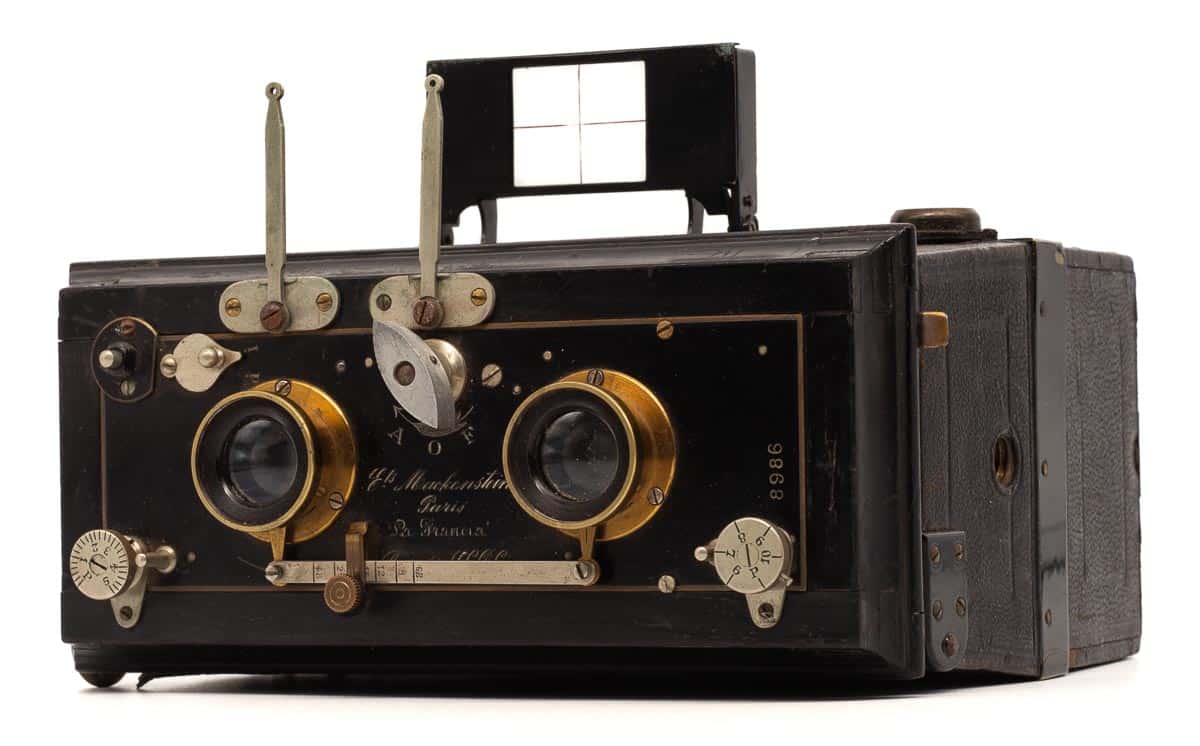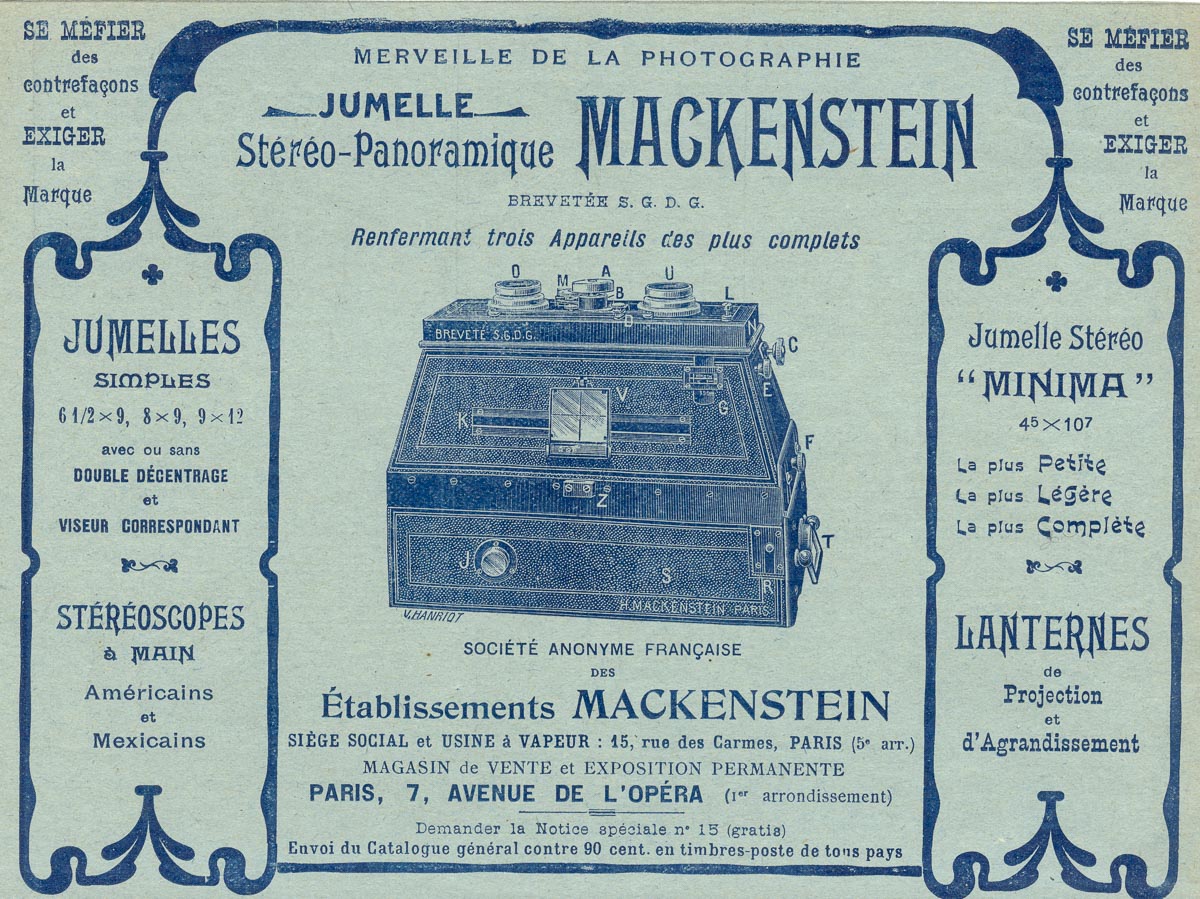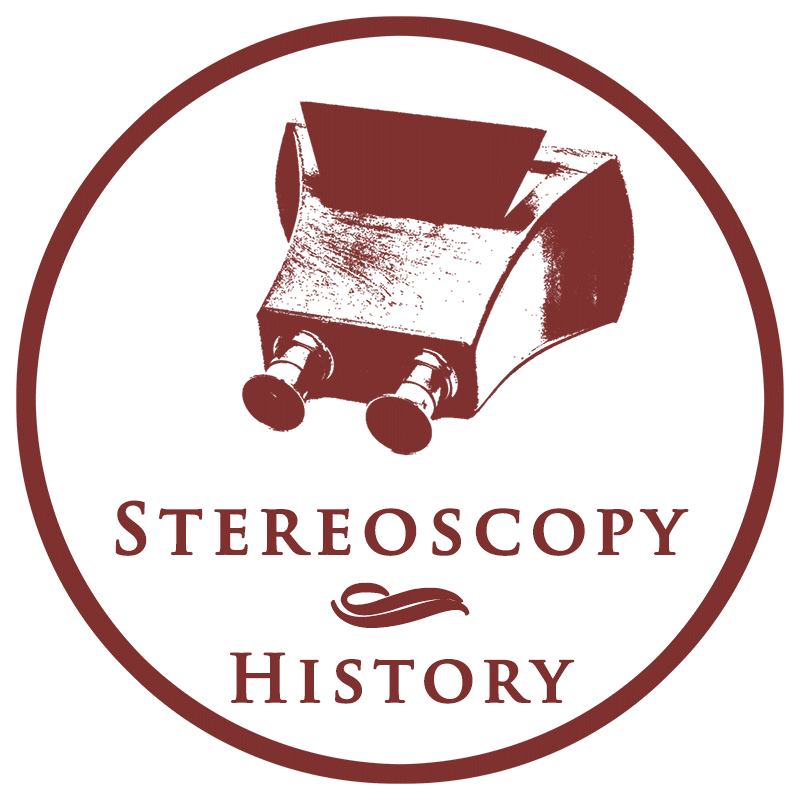
La “Francia” No. 4 is a versatile camera manufactured by Mackenstein from Paris. The camera can take both stereo and panorama photos. With the name “Francia”, Mackenstein wanted to emphasise that his company was French, which was necessary given his German heritage and the anti-German sentiments following the Franco-Prussian War of 1870.
The “Francia” Jumelle Stéréo-Panoramique cameras were introduced in 1903 and manufactured until 1915. There were models for different formats. Like the Stéréo-Panoramique Leroy, this camera can be used for taking stereo photos and panorama photos. Mackenstein used a different mechanism than Leroy to accomplish this. The front panel with the lenses can be shifted to enter the panorama mode. The right lens (from the photographer’s point of view) shifts to the middle of the camera and the septum inside the camera flips up. The left lens will not be used and is covered with the lens cap.

Specifications
| Manufacturer: | Mackenstein |
| Year of introduction: | 1903 |
| Year of manufacture: | c. 1911 |
| Type: | Jumelle stereo and panorama camera |
| Serial number: | 8986 |
| Negative type: | Glass |
| Negative format: | 6 x 13 cm |
| Lens: | Two 90 mm Mackenstein Anastigmat série VI f/6.8 lenses |
| Serial number lens: | 18787 and 18788 |
| Lens aperture: | f/6.8, f/9, f/12, f/16, f/24 and f/48 |
| Focus: | Fixed focus |
| Shutter: | Eleven shutter speeds |
| Dimensions (L x W x H): | 18 x 15.5 x 8 cm (body with lenses and attached plate holder) |
| Construction: | Metal |
| Other features: | The aperture settings of both lenses can be adjusted simultaneously via a controller that connects both lenses. A magazine for twelve glass plate negatives or film pack. Folding crosshair viewfinder Spirit level on top |
Glossary: anastigmatic lens / jumelle / negative / septum
Hermann Mackenstein
Hermann Josef Hubert Mackenstein (1846–1924) was born in Doveren, Westphalia (present-day Germany). He learned the trade of carpentry and left for Paris in 1867 to improve his skills. He started manufacturing cameras at the end of the 1870s. His company moved to 15, Rue des Carmes around 1900, and a store was opened in 1902 at 7, Avenue de l’Opéra. Mackenstein’s company became a leading manufacturer of cameras in Paris. Mackenstein manufactured conventional cameras, stereo cameras and stereoscopes. In 1914, the international situation deteriorated, leading to the outbreak of the First World War. Mackenstein was forced to fled to the neutral Netherlands in 1915. He returned to Paris after the war, where he died in 1924. His company was continued by two of his employees, Henri Suffize and Léon Molitor.
The complete story of Mackenstein
